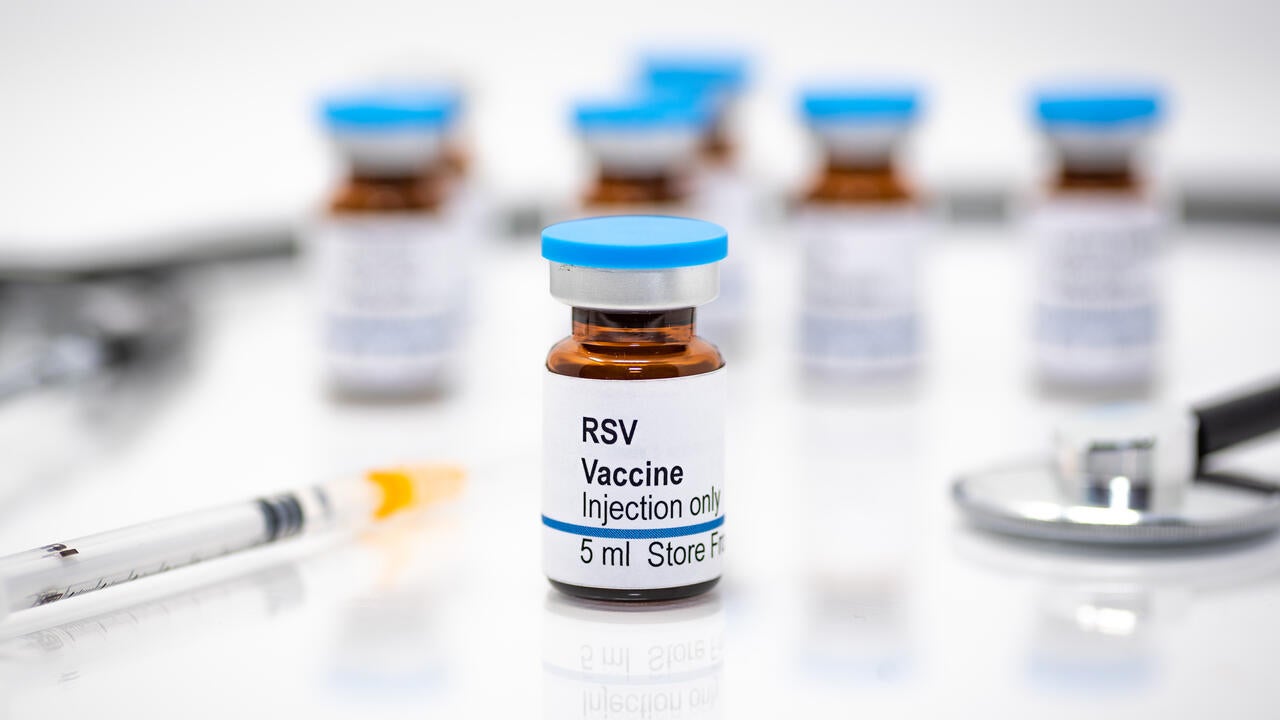
Q and A with the Experts: RSV prevention for vulnerable populations
Your questions about vaccinating against RSV answered here

Your questions about vaccinating against RSV answered here
By Media RelationsRespiratory Syncytial Virus (RSV) is a common virus that seriously affects vulnerable populations such as infants, young children and older adults. Dr. Wasem Alsabbagh, associate professor at the University of Waterloo School of Pharmacy, answers frequently asked questions about RSV.
Why should I be concerned about RSV?
RSV is the leading cause of respiratory tract infections and hospitalizations among infants in Canada. About 80% of children who are hospitalized with bronchitis have RSV, while 20% of infants hospitalized with pneumonia have RSV.
What are the symptoms of RSV?
Patients with RSV present with fever, chills, difficulty sleeping and/or eating. Symptoms in infants range from nasal congestion, cough, and runny nose to severe symptoms of wheezing, shortness of breath, fast breathing and may lead to pneumonia or bronchitis. Parents are urged to seek medical care immediately when symptoms of severe RSV develop.
Who is most at risk for severe RSV?
Risk factors for severe RSV infection include premature birth, chronic lung illness of prematurity, congenital heart failure, neuromuscular impairment, immunodeficiency and Down syndrome. However, severe RSV can happen to any infant and almost 80% of hospitalizations in 2022 for RSV were among healthy infants.
Can I get an RSV vaccine?
GSK’s RSV vaccine (Arexvy) is approved by Health Canada for people aged 60 and older. There is no vaccine for children and infants yet.
Will there be an RSV vaccine for children and adults?
Ontario has started a publicly funded RSV vaccine program tailored and covered in full for older high-risk adults residing in long-term care homes, Elder Care Lodges and retirement homes licensed to provide dementia care services.
Can I get my flu shot, COVID-19 booster and RSV vaccine at the same time?
It is recommended that the GSK RSV vaccine not be routinely co-administered with COVID-19 or influenza vaccines, at least 14 days before or after receiving them. COVID-19 vaccines are recommended to be co-administered with the seasonal influenza vaccine.
This series is produced for the media, and its purpose is to share the expertise of UWaterloo researchers. To reach this researcher, please contact Media Relations.

Read more
Waterloo Pharmacy alum spearheads outpatient oncology clinic for patients undergoing cancer treatment at WRHN

Read more
From optometry and pharmacy to public health and therapeutics, Waterloo alumni are powering Canada’s health care sector

Read more
Here are the people and events behind some of this year’s most compelling Waterloo stories
The University of Waterloo acknowledges that much of our work takes place on the traditional territory of the Neutral, Anishinaabeg, and Haudenosaunee peoples. Our main campus is situated on the Haldimand Tract, the land granted to the Six Nations that includes six miles on each side of the Grand River. Our active work toward reconciliation takes place across our campuses through research, learning, teaching, and community building, and is co-ordinated within the Office of Indigenous Relations.